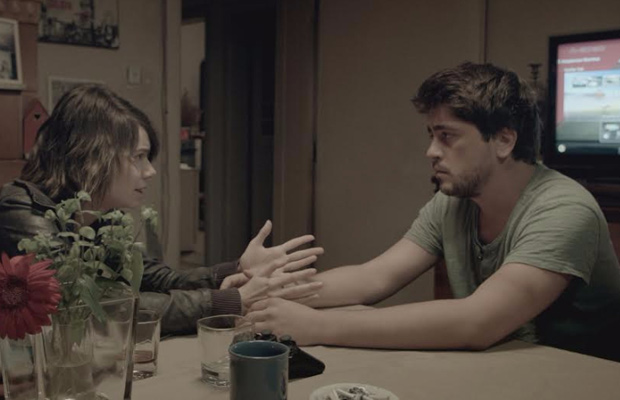Reviews
Illegitimate | 2016 Berlin Intl. Film Festival Review
Cruel Intentions: Sitaru Aims to Provoke with Abortion Drama
Director Adrian Sitaru makes his most galling effort yet with his fourth film, Illegitimate, a social drama engaging two hot-button taboo topics all rolled up into one unsightly experience. At its core, the film is an abortion drama, which automatically places the title in an arena with the hailed juggernaut of the New Romanian Wave, 2007’s 4 Months, 3 Weeks, and 2 Days, which famously netted Cristian Mungiu the Palme d’Or. It’s perhaps an unfair comparison since this rudimentary scenario aims to convey nagging intergenerational discord by complicating the issue of abortion as the result of incest. Unfortunately, the end result is as visually putrid as its subject matter is repugnant, never necessitating the narrative extremities which it assumes will shock or unnerve.
While enjoying a family meal with his grown children, widower Victor Anghelescu (Adrien Titieni), an aging obstetrician, gets involved with a heated debate on abortion. His youngest daughter Sasha (Alina Grigore) discovered his name amongst some documents citing his role in informing on women seeking abortion, which was illegal during the Communist regime under Ceausescu. Sasha’s twin brother Romeo (Robi Urs) and their older siblings Gilda (Cristina Olteanu) and Cosma (Bogdan Albulescu) also become embroiled in a debate which ends with Victor adamantly defending his actions and revealing their mother had wanted to abort the twins, initially. Following the heated argument, Sasha consults other family members about the possibility her mother may have wanted an abortion. Unfortunately, Sasha finds herself to be pregnant with her twin brother Romeo’s child, and ultimately faces the same decision on whether or not to keep her own child, one who would potentially not be accepted by society.
Sitaru is no stranger to challenging social issues, his 2008 feature debut Hooked revolving around a murdered prostitute, while subsequent features such as Best Intentions (2011) and Domestic (2012) developed a certain strain of black comedy based on familiar social institutions, with health care and family pets providing structure to the narrative. But Illegitimate begins on a significantly troubling note before backsliding into a pointed social dilemma which negates feminist agency by cloaking it within a clunky provocation of garish incest. While it’s a taboo subject worthy of cinematic exploration, Sitaru’s poker-faced scenario never proves to be meaningful. Obviously, Sitaru is pointing to the inherent hypocrisy of hardnosed patriarchy, proving even the most adamant opponent of abortion can be hobbled by the right circumstances. Rather than spending so much time on the copulating twins, Sitaru’s more innovative subject is squandered, a patriarch whose actions during the Ceausescu regime are not only reprehensible, but unforgivable. The opening sequence features a terrific bit of mounting tension is at first enhanced by a pronounced staginess of frenetic pans and zooms, choices which quickly feel mundane once we’re thrust into the uncomfortable moral dilemma where a woman’s choice is threatened not only by her father but the brother who impregnated her.
Adrian Titieni has appeared in all three of Sitaru’s previous features, and he brings a certain presence as a man entrenched in the previous era’s political outlook. Co-written by actress Alina Grigore (of Sitaru’s Best Intentions and Cristi Puiu’s Aurora), there is definite potential here, marinating in the scenario’s shock value. But Illegitimate depends too much on the salaciousness of its subject matter, attempting to demonstrate an extreme scenario to justify an excuse for a woman’s right to choose through an impossibility (as its title suggests), since no social law or custom would knowingly justify the existence or necessity of a child of incest.
With depleted visual palettes and inescapably downcast exteriors, Illegitimate is hopelessly wearying, though even with this obvious scenario, it still seems sensational enough to generate conversations on foregone conclusions. Although Valerie Donzelli’s Marguerite and Julien seems a much more justifiable exploration of incest as regards artistic flourish, and praise for her film was notably scarce after its ill fated Cannes premiere.
Reviewed on February 19 at the 2016 Berlin International Film Festival – Forum Program. 89 Mins.
★★½/☆☆☆☆☆

























